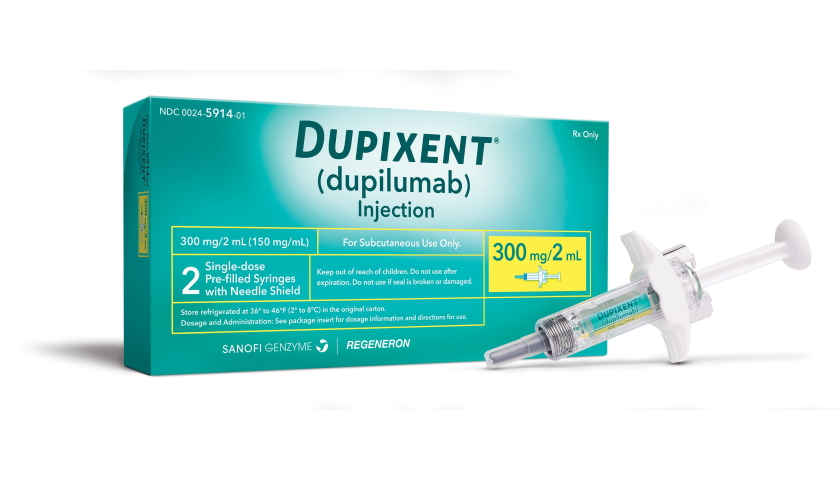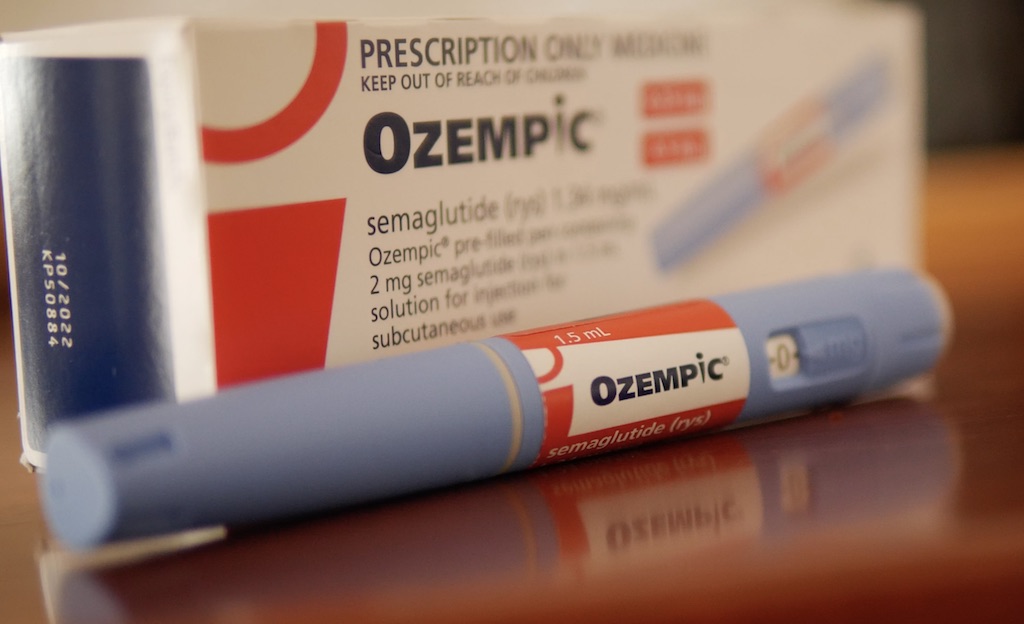The trend toward AI, which has been dominating discussions in so many fields since late last year, is finding growing applications in healthcare as well. In March, researchers announced the development of an AI-based system called DeepGlioma that can screen for genetic mutations in cancerous brain tumours in less than 90 seconds, according to a study published in Nature Medicine.
The system, developed by a team of neurosurgeons and engineers at Michigan Medicine in collaboration with other institutions, uses rapid imaging to analyze tumour specimens and detect their genetic mutations in real time with an average accuracy of over 90%. Molecular classification is crucial for diagnosing and treating gliomas—the most common and deadly primary brain tumour—but access to molecular testing is limited, with results sometimes taking weeks. The speed and accuracy of DeepGlioma provides an opportunity for increased early enrollment in clinical trials for glioma patients. Currently, less than 10% of patients with glioma enter clinical trials, which are often restricted by the molecular subgroups that DeepGlioma can so quickly determine.1
And as part of an effort to expand its own cancer treatment offerings, Pfizer (held by the Fund) announced a $43 billion deal to acquire Seattle-based Seagen Inc., a biotech firm known for its targeted cancer drugs. The companies expect the deal to be finalized in late 2023 or early 2024. Seagen is a pioneer in antibody drug conjugates (ADCs), a class of drugs that use anti-cancer toxins to target tumours. ADCs are predicted to be a significant segment of the $375 billion global cancer drugs market, with estimated sales of $31 billion by 2028.
Cancer treatment is a crucial business segment for Pfizer, contributing over $12 billion to the company’s $100 billion in sales in 2022. With several drugs facing patent expiration in the coming years, Pfizer has been seeking acquisitions to offset expected declines. Seagen’s therapies would expand Pfizer’s portfolio of breast and bladder cancer drugs and bolster its offerings for other tumours with large patient populations, such as myeloma.
Pfizer executives believe that the Seagen acquisition could generate more than $10 billion in revenue by 2030, assuming the successful expansion of the biotech’s drugs to treat additional types of tumours.2
In other Pfizer news, a new study by Stanford Medicine confirmed that the Pfizer/BioNTech mRNA COVID-19 vaccine is more effective at stimulating an effective T cell response to fight future SARS-CoV-2 infections compared to natural infection with the virus. The study also showed that getting vaccinated after being infected with SARS-CoV-2 improves the immune response, but not as much as getting vaccinated before contracting the disease. This suggests that getting vaccinated prior to infection is the best approach to minimizing health risks associated with COVID-19. The findings were published in Immunity.3
Updates on Specific Healthcare Companies

Sanofi S.A.
The late-stage clinical trial results for Dupixent, Sanofi’s anti-inflammatory asthma drug developed in partnership with Regeneron Pharmaceuticals, Inc., are promising. The trial showed a 30% improvement in symptoms of moderate or severe chronic obstructive pulmonary disease (COPD) in 939 current or former smokers. The improvements were seen in lung function, quality of life, and respiratory symptoms. Sanofi’s decision to forego earlier-stage clinical trials for COPD may have shortened the development time of the drug.
Sanofi had previously forecasted that Dupixent could generate up to 13 billion euros ($14.2 billion) in sales as its use is expanded to treat other inflammatory conditions, such as eczema. Although COPD was excluded from these projections, market consensus for sales of Dupixent by 2027 could be an additional one to two billion euros. This indicates the potential for Dupixent to become a significant revenue-generating drug for Sanofi, even beyond its initial projections, if it is approved for COPD and other inflammatory conditions.4

Novo Nordisk A/S
New figures released by Novo Nordisk A/S show a significant increase in market value in 2022 due to the success of its weight-loss drugs, Wegovy and Ozempic. Since gaining approval in the US in June 2021, Wegovy, along with Ozempic—diabetes drugs that are also used for weight loss—has doubled Novo Nordisk’s market value to $336 billion USD. This has made Novo Nordisk Europe’s second-most valuable firm, surpassing Nestle SA.
Novo Nordisk’s management acknowledges the potential of these drugs in generating revenue, as they accounted for 43% of group revenues in 2022, up from 30% in 2021. Analysts predict that the global weight-loss therapies market could be worth $30 billion to $50 billion by 2030, and Novo Nordisk’s drugs are seen as key tools in fighting rising obesity rates worldwide.
Both Wegovy and Ozempic are based on appetite-suppressing technology known as GLP-1 agonists, with Wegovy being approved for treating obesity and Ozempic for diabetes but also widely used for weight loss. Novo Nordisk has struggled to keep up with the high demand for its drugs, facing shortages and production issues. However, the company has resolved some of these bottlenecks and is expanding production in the U.S. and Denmark to meet demand.5
LIFE ETF: An Easy Way to Invest in Global Healthcare
Investing in ETFs can be one way to add cutting-edge healthcare to your portfolio.
Evolve Global Healthcare Enhanced Yield Fund (LIFE ETF) provides investors with exposure to twenty global blue-chip companies in the healthcare industry, with a covered call strategy that is actively managed to provide increased yield potential while helping mitigate risk. For more information about the Evolve Global Healthcare Enhanced Yield Fund or any of Evolve ETF’s lineup of exchange-traded funds, please visit our website or contact us.
LIFE ETF Portfolio Strategy and Activity
For the month, Sanofi S.A. made the largest contribution to the Fund, followed by Novartis AG and Novo Nordisk A/S. The largest detractors to performance for the month were CSL Limited, followed by Medtronic Plc and Abbott Labs.
For more blogs like this, and for insights on investing and related investment products, sign up for our weekly newsletter here.
Sources:
- Fromson, N., “AI Predicts Genetics of Brain Cancers in Less Than 90 Seconds,” Technology Networks, March 24, 2023; https://www.technologynetworks.com/cancer-research/news/ai-predicts-genetics-of-brain-cancers-in-less-than-90-seconds-371471
- Hopkins, J. & Rockoff, J., “Pfizer Agrees to Buy Seagen for $43 Billion,” The Wall Street Journal, March 13, 2023; https://www.wsj.com/articles/pfizer-agrees-to-buy-seagen-for-43-billion-180a9117
- Goldman, B., “mRNA vaccine beats infection for key defense against COVID-19, Stanford Medicine scientists find,” Stanford Medicine, March 28, 2023; https://med.stanford.edu/news/all-news/2023/03/vaccine-covid-infection.html
- Burger, L., “Sanofi, Regeneron unveil ‘blow-out’ smoker’s lung drug data,” Reuters, March 23, 2023; https://www.reuters.com/business/healthcare-pharmaceuticals/sanofi-regenerons-dupixent-meets-endpoints-clinical-trial-2023-03-23/
- Ekblom, J. & Ring, S., “Obesity Drug Hit Makes Novo Nordisk More Valuable Than Nestle,” BNN Bloomberg, March 24, 2023; https://www.bnnbloomberg.ca/obesity-drug-hit-makes-novo-nordisk-more-valuable-than-nestle-1.1899906
The contents of this blog are not to be used or construed as investment advice or as an endorsement or recommendation of any entity or security discussed. These contents are not an offer or solicitation of an offer or a recommendation to buy or sell any securities or financial instrument, nor shall it be deemed to provide investment, tax or accounting advice. The information contained herein is intended for informational purposes only.
Commissions, management fees and expenses all may be associated with exchange traded funds (ETFs) and mutual funds (funds). Please read the prospectus before investing. ETFs and mutual funds are not guaranteed, their values change frequently, and past performance may not be repeated. There are risks involved with investing in ETFs and mutual funds. Please read the prospectus for a complete description of risks relevant to ETFs and mutual funds. Investors may incur customary brokerage commissions in buying or selling ETF and mutual fund units.
Certain statements contained in this blog may constitute forward-looking information within the meaning of Canadian securities laws. Forward-looking information may relate to a future outlook and anticipated distributions, events or results and may include statements regarding future financial performance. In some cases, forward-looking information can be identified by terms such as “may”, “will”, “should”, “expect”, “anticipate”, “believe”, “intend” or other similar expressions concerning matters that are not historical facts. Actual results may vary from such forward-looking information. Evolve Funds undertakes no obligation to update publicly or otherwise revise any forward-looking statement whether as a result of new information, future events or other such factors which affect this information, except as required by law.
